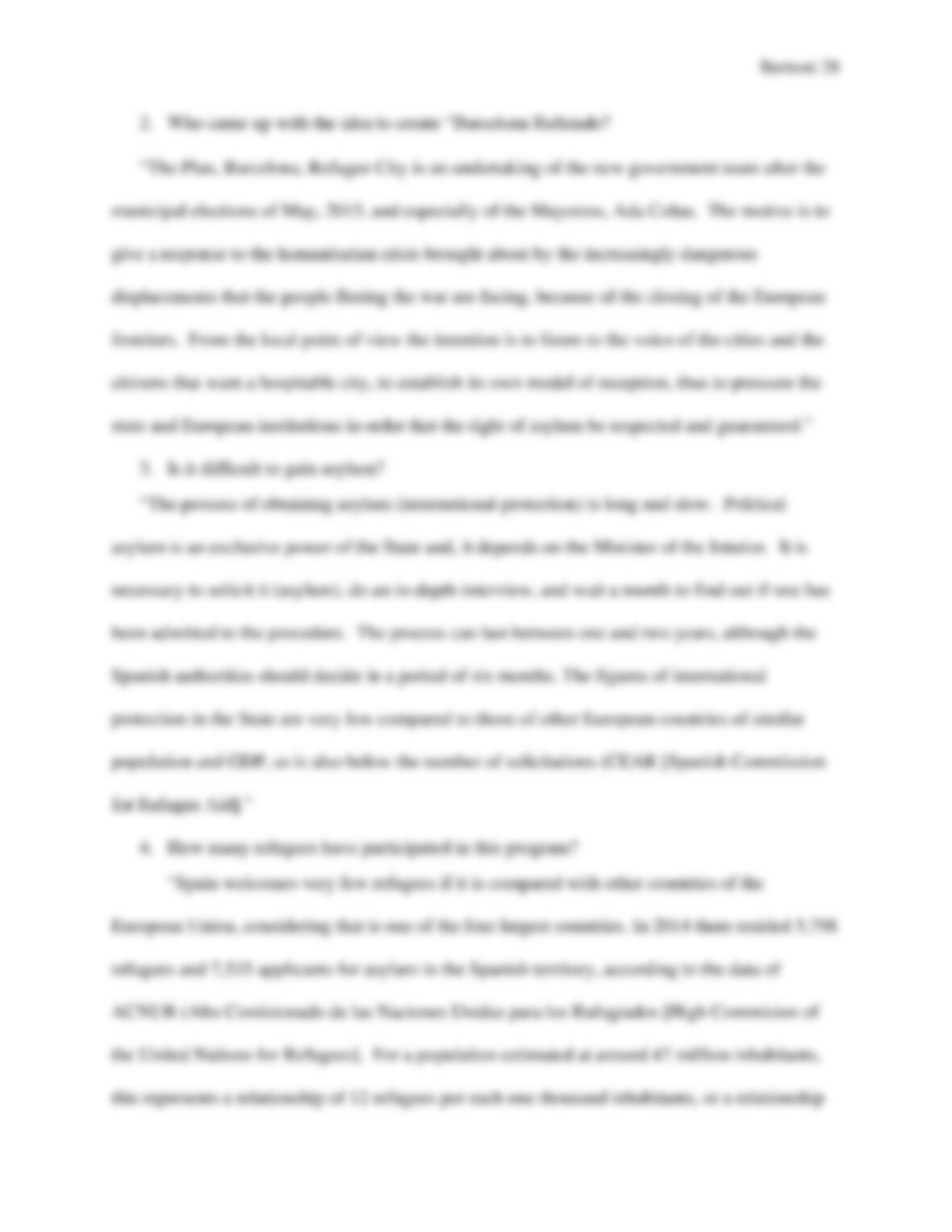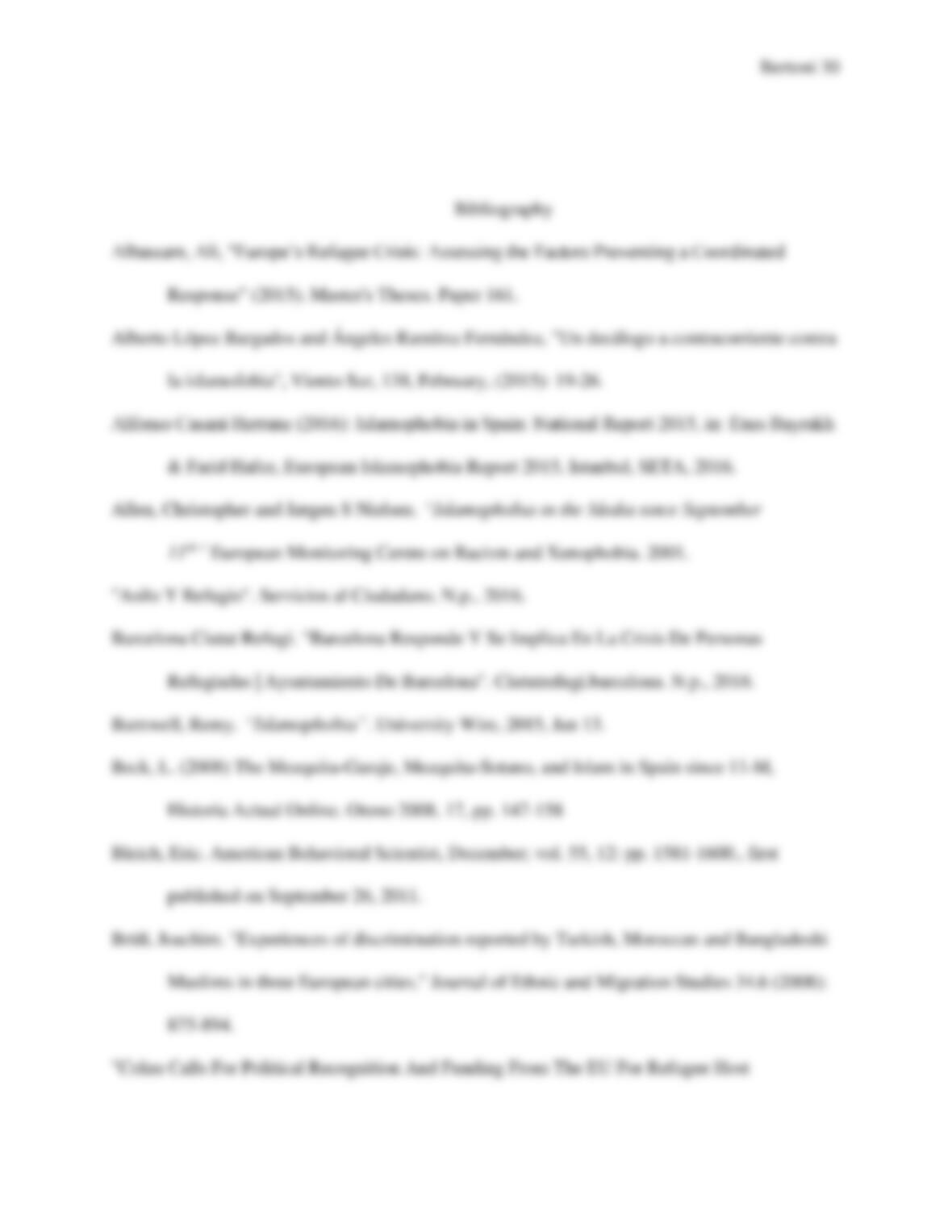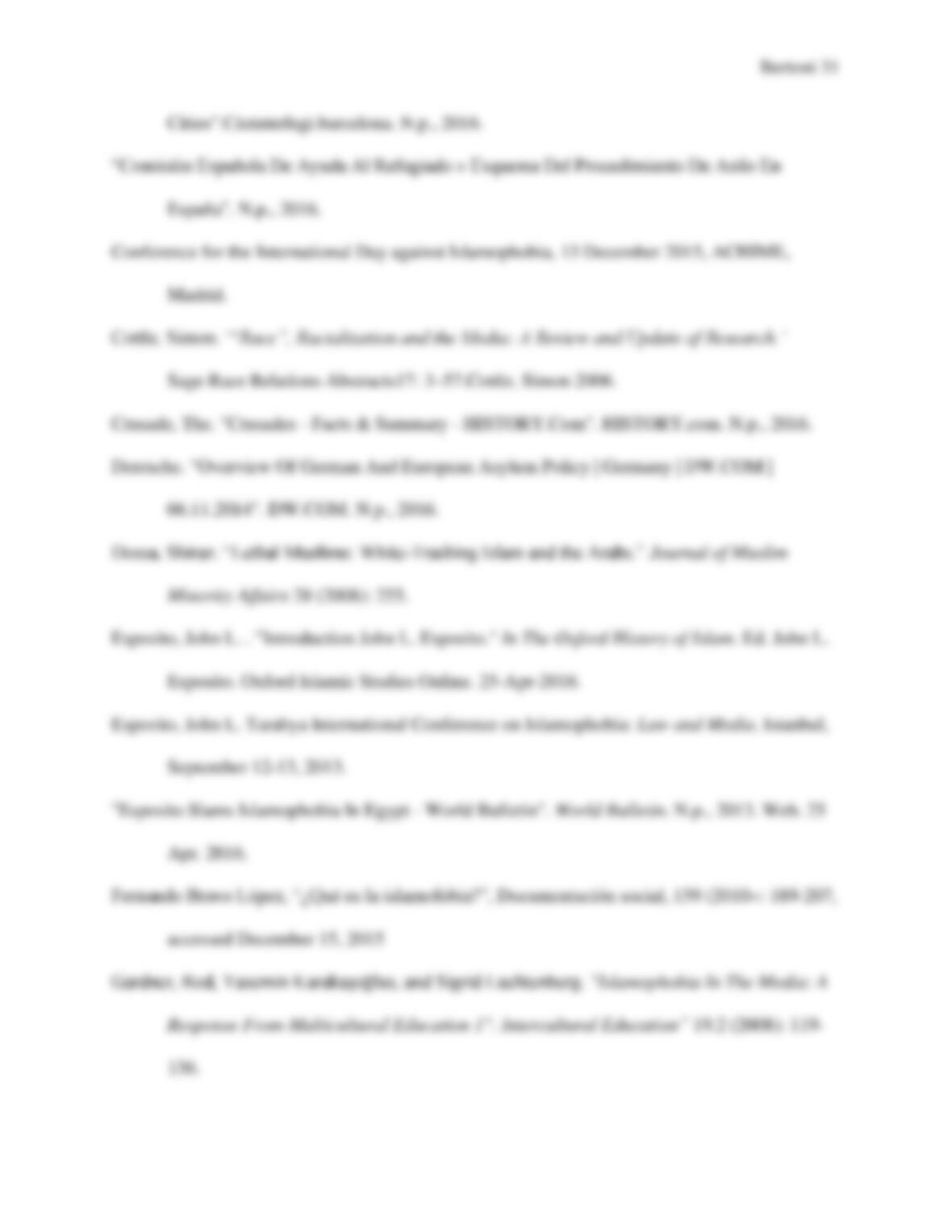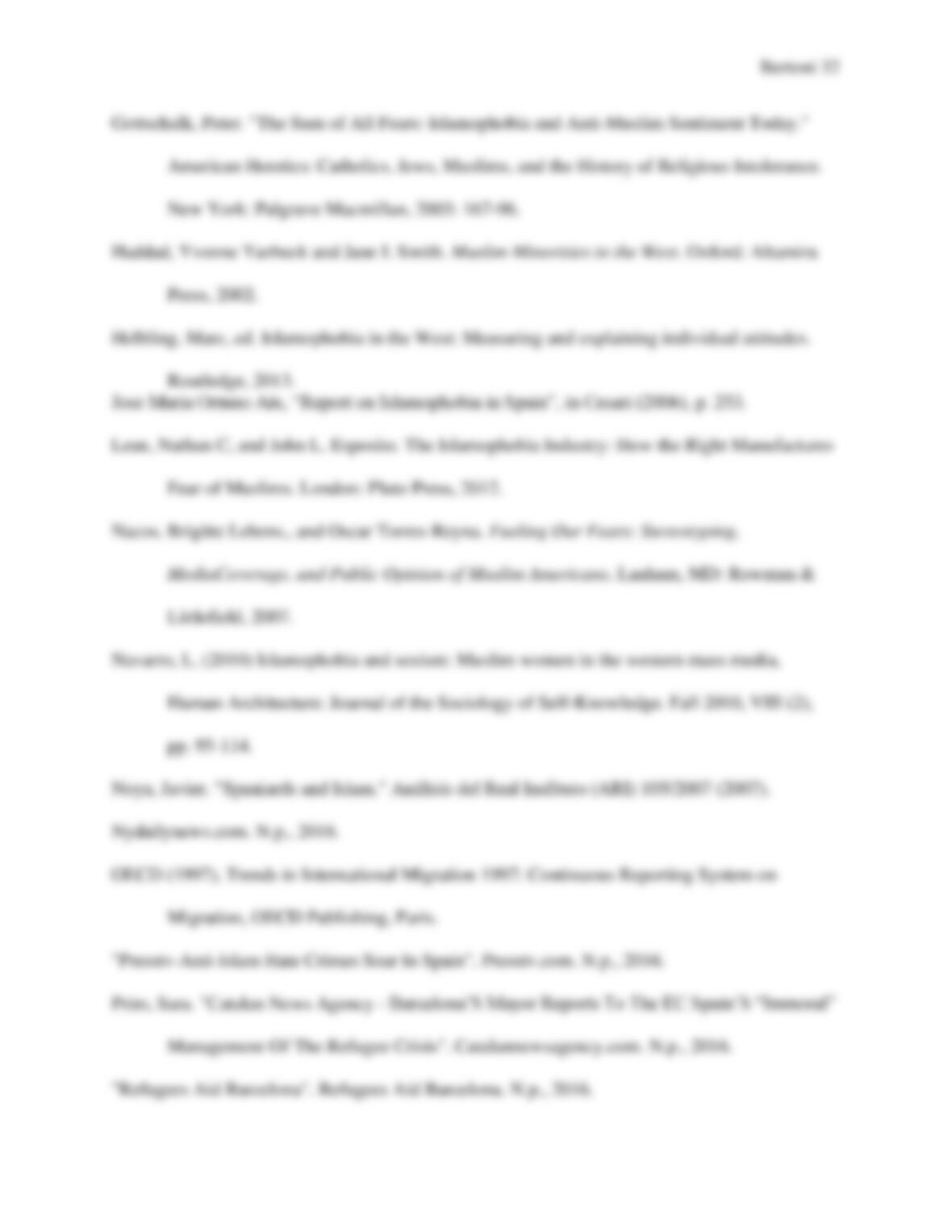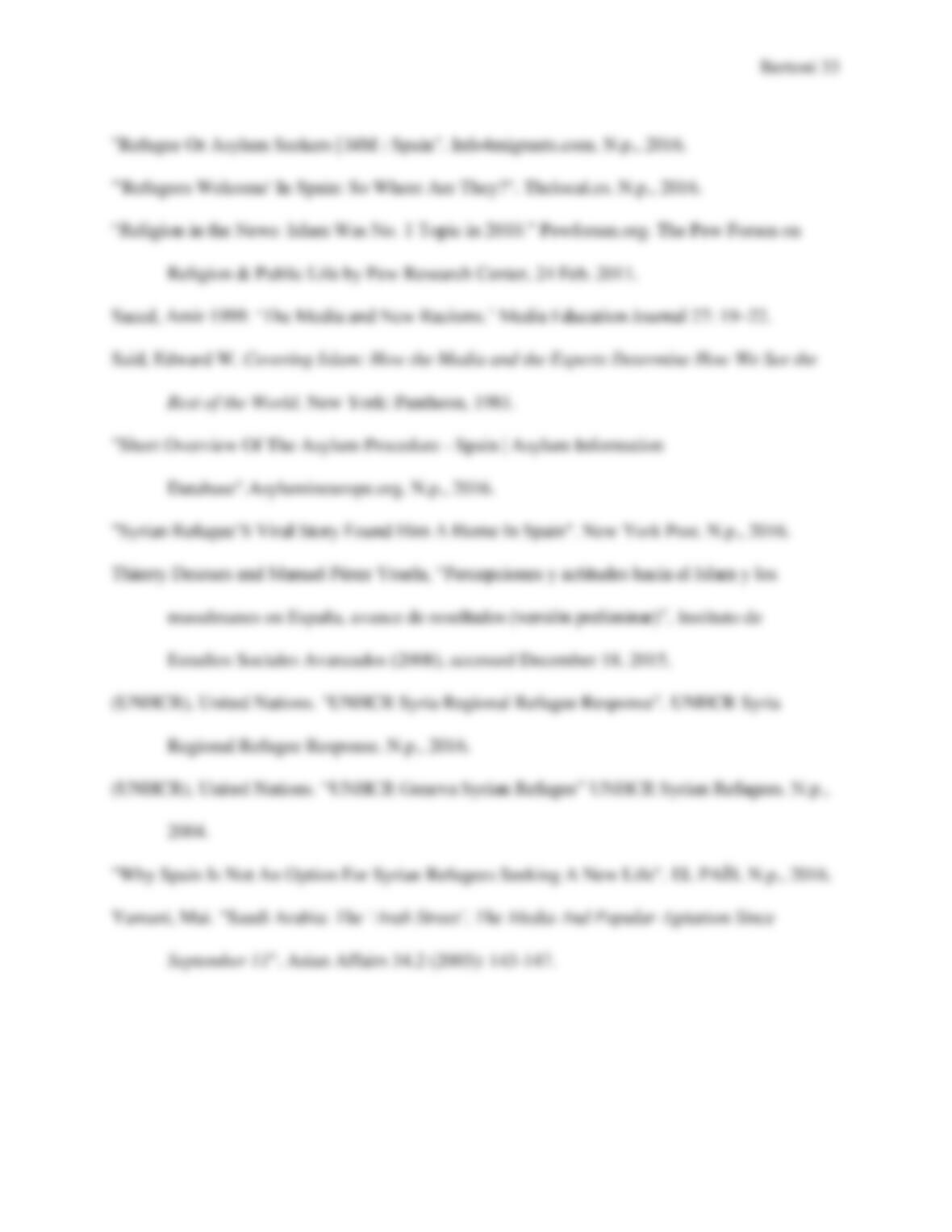April showed that so far 18 refugees have been relocated in Spain (UNHCR). The new mayors of
Madrid and Barcelona, Manuela Carmena and Ada Colau, as well as the Catalan government,
have all announced they are looking at ways of welcoming an unspecified number of Syrian
refugees in response to the crisis occurring in the Mediterranean. This investigative study will
examine what motivated Barcelona, Madrid and several other cities to start their own network of
“safe cities” to assist Syrian refugees arriving in Europe. Barcelona City Hall said it intends to
create a network of cities to welcome refugees and announced a €200,000 budget increase for the
city's Immigrant, Emigrant & Refugee Service, following a meeting between Mayor Ada Colau,
the trade union Commissions Obreras, the Red Cross, the Catalan Human Rights Institute and the
Barcelona lawyers association (The Spain Report).
This research paper will also be addressing why Spain has done little to accept Syrian
refugees compared to other EU countries. Race or fear may play of factor in this process and
through research and existing literature I will be able to investigate if the media plays a role in
the reasoning behind Spain not accepting as many Syrian refugees. Refugee entering European
countries has become widespread over the last year. They face many challenges trying to cross
borders, and sadly, their trials do not end there. Asylum, jobs, and social acceptance are some of
the other obstacles they face once in a new country. I want to investigate the many reasons why
Barcelona, Madrid and several other cities are so openly to welcome these refugees. I will
investigate their reasons through interviews with immigration offices and contacts with Ada
Colau. I will also analyze how these programs will help increase the amounts of Syrian refugees
that enter Spain by looking at data on their websites and contacting refugee and immigration
offices.





















